Economy
House sales in Türkiye rise in May, hit highest year-to-date level
House sales in Türkiye surged by 17.6% year-over-year in May to over 130,000 units, thus reaching the highest monthly level so far this year, according to official data on Thursday.
The number of houses sold last month across the country stood at 130,025, the data from the Turkish Statistical Institute (TurkStat) revealed.
This compares to 110,588 units sold in May last year and 118,359 in April this year. The sales peaked last December when over 212,000 units were sold.
Istanbul took the lion’s share with sales of 22,103 units in May, followed by the capital Ankara with 11,975 and the Aegean city of Izmir with 7,817, TurkStat data said.
Foreigners bought 1,771 houses in Türkiye last month, down 14.2% year-over-year, pointing to a continued trend in the fall of sales to foreign citizens in the recent period. In the January-May period, house sales to foreigners decreased by 13.7% compared to the same period of the previous year to 7,789.
House sales to foreigners had a 1.4% share of all house sales in May.
In May, the most house sales by nationality were made to citizens of Russia, Iran and Germany.
On the other hand, the provinces with the highest number of house sales to foreigners were Istanbul with 648 units, Antalya with 594 and Mersin with 145, respectively.
The data also revealed that mortgage house sales leaped 95.9% on an annual basis in May to 19,412 units, accounting for 14.9% of all house sales.
Sales of new houses rose 11.2% in May to reach 39,546 units, while second-hand sales grew 20.6% year-over-year to 90,479.
From January through May, house sales totaled 584,170 units, up 25.4% compared to the same period in 2024, the data showed.
Economy
Valentine’s Day, Ramadan rush to boost e-commerce sales in Türkiye
Valentine’s Day spending, combined with the additional demand from Ramadan, coming in the same period this year, is expected to boost e-commerce volume in February in Türkiye, sector representatives said on Tuesday.
The e-commerce volume is expected to top TL 400 billion ($9.1 billion), according to Hakan Çevikoğlu, president of the Electronic Commerce Operators Association (ETID).
Valentine’s Day creates a significant spike in demand in the sector as the first major campaign period of the year in e-commerce, Çevikoğlu told Anadolu Agency (AA).
He noted that with the campaigns starting from the last week of January, there has been noticeable activity in both transaction volume and user interaction on e-commerce platforms as well as with retailers.
Valentine’s Day, which comes later this week, is traditionally a popular period when an uptick in sales of fresh flowers and personalized gifts occurs, both in Türkiye and worldwide.
At the same time, the holy month of Ramadan, which this year begins on Feb. 19, is a time when families and friends often come together for breaking the fast (iftar) and when dishes are prepared with utmost diligence.
Ahead of Ramadan, individuals and families tend to do larger shopping, purchasing foods and drinks specific to this month, such as dates and special types of flavored juices (sherbets).
Sales rise of 50% to 60%
“The combination of Valentine’s Day week with pre-Ramadan shopping is expected to signal a stronger demand outlook in e-commerce sales across the sector,” Çevikoğlu maintained.
“Therefore, in addition to gift-focused categories, we anticipate that sales in food and fast-moving consumer goods related to Ramadan will increase by an average of 50%-60%,” he added.
Noting that the Valentine’s Day campaigns, along with Ramadan needs, will not only create a short-term sales momentum, Çevikoğlu said they expect e-commerce to stand out as a strategic period that shapes the sector’s first-quarter performance and allows insights into consumer trends for the rest of the year.
Furthermore, he highlighted that the most demanded categories in e-commerce during this period are clothing, cosmetics, electronics, jewelry and accessories, home decoration and Valentine’s Day-themed gift products.
Consumer preferences
“Flowers and chocolates, as every year, are among the indispensables of this special day, while the impact of the winter season sees noticeable activity in products like sweaters, blankets and specially printed textiles,” he noted.
Çevikoğlu explained that there has been a shift in gift preferences toward more meaningful, experience-based and personalization-focused items in recent years.
“Consumers are increasingly turning to experience-based gifts such as travel, concert and event tickets, vacation and hotel reservations, alongside traditional products,” he said.
“Donations to associations or non-governmental organizations (NGOs) in the name of loved ones, tree planting, and scholarship support, which contain social responsibility aspects, are also becoming more widespread,” he added.
“We expect the e-commerce volume in February to exceed TL 400 billion. During this period, the average basket size is expected to rise to around TL 3,000 to TL 5,000 due to the effect of Valentine’s Day campaigns,” Çevikoğlu also said.
Economy
Israel’s permit crackdown drives economic despair across West Bank
Israel’s targeting of Palestinian labor following the genocidal Gaza war has pushed the occupied West Bank deeper into economic crisis, leaving tens of thousands without income and raising fears of social collapse.
With most work permits revoked and only a fraction restored, families that once depended on higher-paying jobs inside Israel are struggling to afford food, rent and basic necessities, as unemployment surges and desperation spreads across the occupied territory.
Hanadi Abu Zant has been unable to pay the rent on her West Bank apartment for almost a year since her permit to work in Israel was revoked. When her landlord contacts the police, she takes refuge in a mosque.
“My biggest fear is being kicked out of my home. Where will we sleep, on the street?” she said, wiping tears from her cheeks.
She is among some 100,000 Palestinians whose work permits were revoked since Israel’s relentless war on Gaza began. Confined to the occupied territory, where jobs are scarce and wages far lower, they face dwindling and dangerous options as the economic crisis deepens.
Some have sold their belongings or gone into debt as they try to pay for food, electricity and school expenses for their children. Others have paid steep fees for black-market permits or tried to sneak into Israel, risking arrest or worse.
Israel, which has been occupying the West Bank for nearly six decades, claims it is under no obligation to allow Palestinians to enter for work and makes such decisions based on security considerations. Thousands of Palestinians are still allowed to work in scores of Jewish settlements across the West Bank, built on land they want for a future state.
Risk of collapse
The World Bank has warned that the West Bank economy is at risk of collapse because of Israel’s restrictions. By the end of last year, unemployment had surged to nearly 30% compared with around 12% before the war, according to the Palestinian Central Bureau of Statistics.

Israel’s genocidal war has killed over 72,000 people in Gaza, mostly women and children, since Oct. 7, 2023, after Palestinian resistance group Hamas’ surprise cross-border attack, according to the Health Ministry. The U.N. and independent experts consider it the most reliable source on war casualties.
Since the last October cease-fire, Israel’s attacks have killed more than 580 Palestinians.
Before the war, tens of thousands of Palestinians worked inside Israel, mainly in construction and service jobs. Wages can be more than double those in the landlocked West Bank, where decades of Israeli checkpoints, land seizures and other restrictions have weighed heavily on the economy.
About 100,000 Palestinians had work permits that were revoked after the outbreak of the war. Israel has since reinstated fewer than 10,000, according to Gisha, an Israeli group advocating for Palestinian freedom of movement.
Wages earned in Israel injected some $4 billion into the Palestinian economy in 2022, according to the Institute for National Security Studies, an Israeli think tank. That’s equivalent to about two-thirds of the Palestinian Authority’s budget that year.
Israel seized the West Bank, Gaza and East Jerusalem in the 1967 Mideast war, territories the Palestinians want back for a future state. Some 3 million Palestinians live in the West Bank, along with over 500,000 Israeli settlers who can come and go freely.
The war in Gaza has brought a spike in settler violence. And military operations that Israel claims are aimed at dismantling armed groups have caused heavy damage in the West Bank and displaced tens of thousands of Palestinians.
‘My refrigerator, it’s empty’
After her husband left five years ago, Abu Zant secured a job at a food-packing plant in Israel that paid around $1,400 a month, enough to support her four children. When the war erupted, she thought the ban would only last a few months. She baked pastries for friends to scrape by.
While there are no definite figures, tens of thousands of Palestinians are believed to be working illegally in Israel, according to Esteban Klor, professor of economics at Israel’s Hebrew University and a senior researcher at the INSS. Some risk their lives trying to cross Israel’s separation barrier, which consists of 9-meter-high (30-foot) concrete walls, fences and closed military roads.
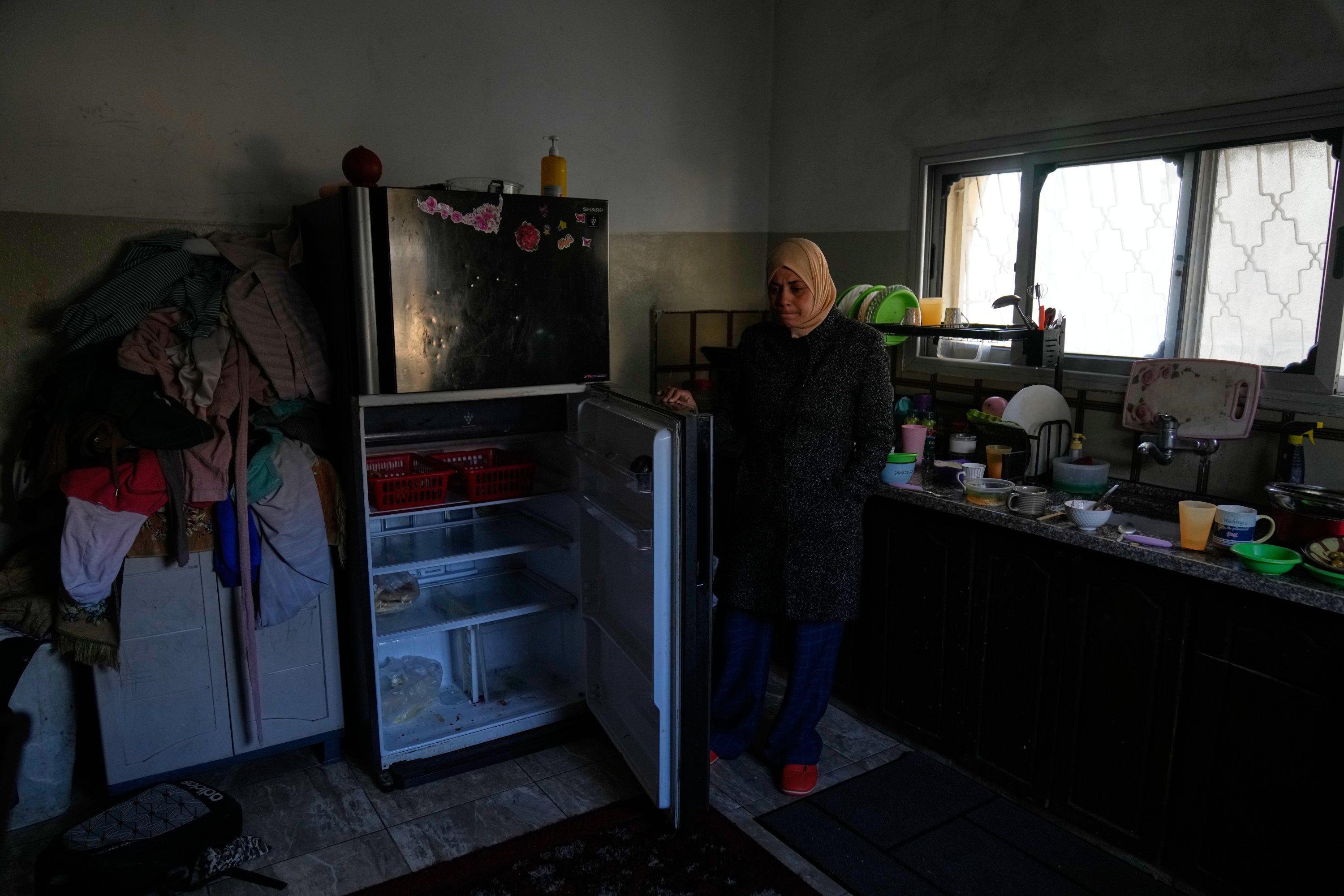
Shuhrat Barghouthi’s husband has spent five months in prison for trying to climb the barrier to enter Israel for work, she said. Before the war, the couple worked in Israel, earning a combined $5,700 a month. Now they are both unemployed and around $14,000 in debt.
“Come and see my refrigerator, it’s empty, there’s nothing to feed my children,” she said. She can’t afford to heat her apartment, where she hasn’t paid rent in two years. She says her children are often sick and frequently go to bed hungry.
Sometimes she returns home to see her belongings strewn in the street by the landlord, who has been trying to evict them.
Forced to work in settlements
Of the roughly 48,000 Palestinians who worked in Israeli settlements before the war, more than 65% have kept their permits, according to Gisha. The Palestinians and most of the international community view the settlements, which have rapidly expanded in recent years, as illegal.
Palestinians employed in the settlements, speaking on condition of anonymity for fear of retribution, say their employers have beefed up security since the start of the war and are far more willing to fire anyone stepping out of line, knowing there are plenty more desperate for work.
Two Palestinians working in the Mishor Adumim settlement said security guards look through workers’ phones and revoke their permits arbitrarily.
Israelis have turned to foreign workers to fill jobs held by Palestinians, but some say it’s a poor substitute because they cost more and do not know the language. Palestinians speak Arabic, but those who work in Israel are often fluent in Hebrew.
Raphael Dadush, an Israeli developer, said the permit crackdown has resulted in costly delays.
Before the war, Palestinians made up more than half of his workforce. He’s tried to replace them with Chinese workers but says it’s not exactly the same.
Assaf Adiv, the executive director of an Israeli group advocating for Palestinian labor rights, said there has to be some economic integration, or there will be “chaos.”
“The alternative to work in Israel is starvation and desperation,” he said.
Economy
Türkiye’s 1st 2026 inflation report to offer more than forecasts
This week’s release of the first quarterly inflation report of 2026 by the Central Bank of the Republic of Türkiye (CBRT) is expected to serve as an early test of the country’s disinflation drive.
Analysts broadly expect policymakers to revise their year-end inflation forecasts upward, but markets will also be looking at potential clues on the interest rate path for the coming months.
Annual consumer price growth has continued to ease steadily, though monthly volatility has persisted. That is seen as one of the factors behind the central bank’s more cautious easing cycle.
Some officials and analysts now say policymakers may need to either slow the pace of rate cuts that began more than a year ago or tolerate a slower rate of disinflation. Most expect a combination of both.
Authorities have been pursuing a more than 2.5-year effort to curb inflation, which has gradually fallen to around 30% as of last month, after peaking near 75% in mid-2024.
Vice President Cevdet Yılmaz said on Saturday that Türkiye’s tight and disciplined monetary and fiscal policies were vital but “not enough,” stressing that supply-side policies could also help to tame annual inflation that had risen as high as 75% in mid-2024.
Yılmaz said the 45-point fall in inflation since May 2024 was not enough, adding the government was on a path to further lower consumer prices.
“We will maintain our tight monetary policy, we will keep our disciplined fiscal policies, we are determined to do this. But these are not enough either. On the other hand, we have to contribute to our battle with inflation through our supply-side policies,” he added.
Lifting forecasts
Attention will turn to Thursday’s inflation report, where Governor Fatih Karahan is widely expected to raise the bank’s year-end forecast from the current 13%-19% range.
Karahan could even nudge the bank’s interim end-2026 target up from 16%, though that move is less certain, given that the target is meant to remain largely fixed in order to guide policy expectations, the analysts say.
Last month, consumer price inflation surged nearly 5% month-over-month, a higher-than-expected uptick that officials attributed to “seasonal factors” and one-off adjustments.
It is expected to slow to around 3% this month.
Easing cyle
Monetary policy easing has zig-zagged since the central bank first cut its key interest rate from 50% in late 2024.
Nearly a year ago, it briefly reversed course due to market volatility, and has since slashed rates by 300 basis points, then 250, 100, 150, and again by 100 points to 37% last month.
Having already slowed its easing, the central bank warned last month about risks to the disinflation process and said it would tighten policy if there were a “significant deviation in inflation outlook from the interim targets.”
Some analysts predict the central bank may need to pause the cuts, possibly as soon as its next rate decision in March, to avoid this deviation.
Wall Street bank JPMorgan raised its year-end consumer price index (CPI) forecast to 24% from 23% and predicted a series of 100-point cuts this year, with the chance of a smaller easing in March due to restaurant and food price pressure during the Muslim holy month of Ramadan.
Economy
US lawmaker urges Lutnick to resign over alleged Epstein links
A Republican lawmaker has called on U.S. Commerce Secretary Howard Lutnick to step down over his alleged links to convicted sex offender Jeffrey Epstein, citing newly released court files as the saga over high-profile ties to disgraced financier deepens.
Representative Thomas Massie told broadcaster CNN in an interview published on Sunday that the documents suggest Lutnick visited Epstein’s private Caribbean island and maintained business ties with him years after Epstein pleaded guilty to child prostitution charges in 2008.
“He’s got a lot to answer for, but really, he should make life easier on (U.S. President Donald Trump), frankly, and just resign,” Massie said.
Epstein, who ran a long-running sexual abuse operation involving young women and minors, died by suicide in jail in 2019 while awaiting further prosecution. Lutnick is mentioned repeatedly in the recently unsealed Epstein files, though inclusion in the records does not in itself indicate wrongdoing.
U.S. media, citing emails contained in the documents, reported that Lutnick and his family planned a visit to Epstein’s island, Little St. James, in 2012, with a follow-up message suggesting the trip may have taken place. The island has previously been described as the center of Epstein’s abuse network.
According to The New York Times, Lutnick and Epstein, who were neighbors in New York, invested in the same private company, while CBS News said the two appeared to have business dealings after Epstein became a known sex offender.
Lutnick had said in a podcast last year that he decided in 2005 never to be in the same room again with Epstein, whom he called a “disgusting person.”
The New York Times reported that Lutnick said in a brief phone call last week that he had spent “zero time” with Epstein.
Economy
Şimşek touts Türkiye’s ‘resilience’ despite global economic uncertainty
Türkiye has remained economically resilient despite mounting global uncertainty, underpinned by free trade agreements, strong service exports and an ongoing reform agenda, Finance Minister Mehmet Şimşek said on Monday.
Şimşek, speaking at the Conference for Emerging Market Economies in Saudi Arabia, described last year as a challenging period for the global economy marked by “volatility, uncertainty, complexity, and ambiguity.”
“It’s been a difficult year with heightened uncertainty, in particular for emerging markets,” he said.
Şimşek said Türkiye is relatively resilient to global trade fragmentation, noting that about 62% of its exports are covered by the EU Customs Union and free trade pacts with 27 countries.
While not fully immune, these agreements provide partial protection, and the rest of trade is largely concentrated in nearby regions such as the Middle East, North Africa, and Central Asia.
He said Türkiye ranks among the world’s top 20 in services trade, highlighting its position as fourth in tourism and a global leader in construction and TV series exports. He stressed that services have so far been less affected by protectionism than goods, giving Türkiye an edge, and said the government is prioritizing the sector for its high added value and job creation potential.
Şimşek says Türkiye also prioritizes and invests in the field of artificial intelligence, and stated that along with infrastructure investments, they attach importance to the human capital dimension, skills development, and education.
Şimşek explained that they are also focusing on regional integration, stating that connectivity is a part of this, and that they are building new corridors.
He said Türkiye sits on the Middle Corridor from Beijing to London and is working on new routes linking the Gulf to global markets via Türkiye, adding that boosting connectivity is central to the strategy, alongside energy investments, including plans to build two or three additional nuclear power plants in the coming decades to meet rising demand driven by AI.
Economy
Ex-Prince Andrew appears to have shared UK trade files with Epstein
Andrew Mountbatten-Windsor, the younger brother of King Charles, shared confidential British trade documents with Jeffrey Epstein in 2010, leaking information to the late sex offender during his tenure as a government envoy, emails appear to show.
The former prince, 65, has faced years of scrutiny over his friendship with Epstein, a relationship that has cost him his role in the royal family, titles and home. Andrew has always denied any wrongdoing and not responded to requests for comment since the latest release of Epstein files.
In the latest batch of files released in the U.S., emails appear to show that Andrew forwarded to Epstein reports about Vietnam, Singapore and other places, which he had been sent in relation to a trip he made in an official capacity.
It was not immediately clear whether authorities were planning to open an investigation into Andrew’s sharing of information.
Trade envoys are usually barred from sharing sensitive or commercial documents under confidentiality rules.
Over the last 10 days, revelations from the Epstein files have engulfed British Prime Minister Keir Starmer in the biggest crisis of his premiership, after he appointed an acquaintance of Epstein, Peter Mandelson, as ambassador to the United States.
Like Andrew, it appears that Mandelson also shared sensitive government files from 2009 and 2010 with Epstein, and police are investigating claims of misconduct in public office.
Thames Valley Police said last week they were reviewing a new allegation against Andrew involving a woman being taken to an address in Windsor in light of the latest Epstein files.
Mountbatten-Windsor, the second son of the late Queen Elizabeth, was forced to quit all official royal duties in 2019 and, last October, Charles removed his title of prince. Andrew was moved out of his royal mansion last week.
-
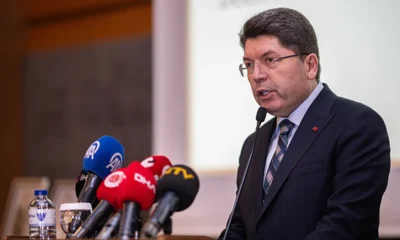
 Daily Agenda2 days ago
Daily Agenda2 days agoMinister of Justice Tunç: “The regulation regarding children involved in crime will come to the parliament after the commission works are completed.”
-
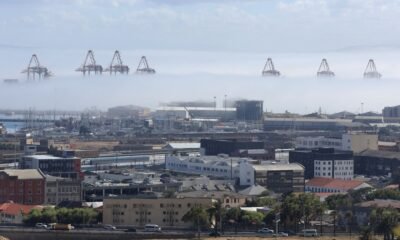
 Economy2 days ago
Economy2 days agoFacing US tariffs, South Africa steps toward trade deal with China
-
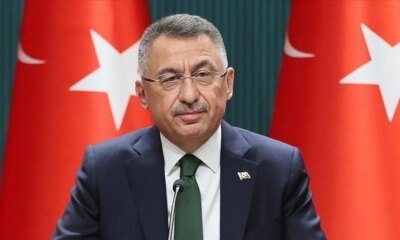
 Daily Agenda2 days ago
Daily Agenda2 days agoParliamentary Foreign Affairs Committee is going to the USA! Fuat Oktay: The constructive attitude of the congress is of critical importance in Türkiye-US relations
-

 Daily Agenda3 days ago
Daily Agenda3 days agoA Akıncı passed from this world
-

 Daily Agenda2 days ago
Daily Agenda2 days agoImmoral and excessive attack on women
-

 Sports2 days ago
Sports2 days agoTurkish center Alperen Şengün named in 2026 NBA All-Star
-

 Sports2 days ago
Sports2 days agoAkar carries Türkiye’s hopes into Olympic short track spotlight
-
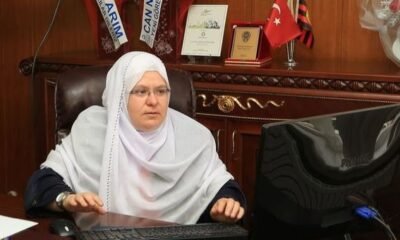
 Politics2 days ago
Politics2 days agoArrest, outrage after far-right man targets Turkish mayor’s dress




